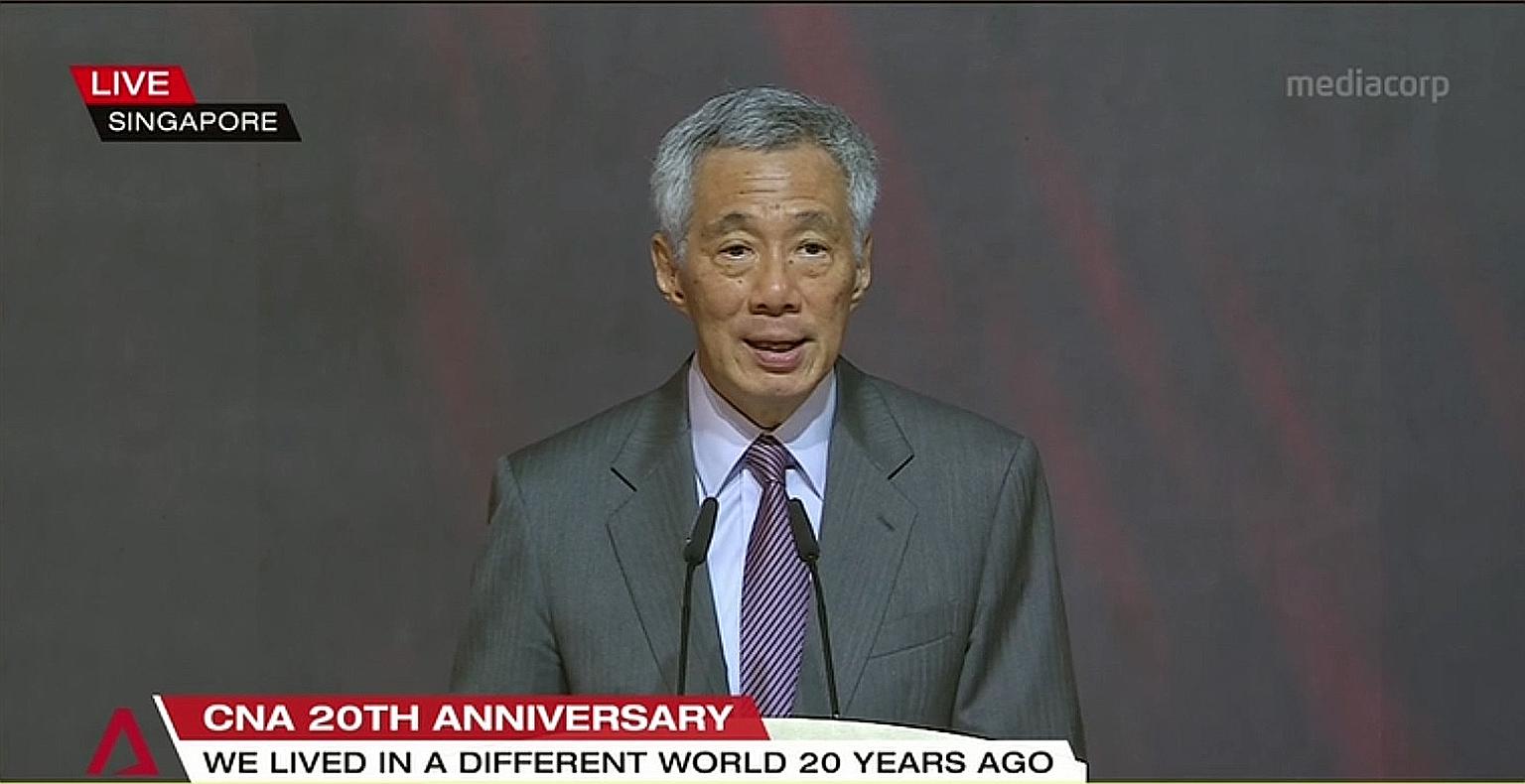No shortage of coordinated campaigns to misinform and mislead, says PM Lee
Sign up now: Get ST's newsletters delivered to your inbox

PRIME MINISTER LEE HSIEN LOONG.
Nowadays, there is no shortage of people and groups conducting coordinated campaigns to produce fake news to misinform and mislead, Prime Minister Lee Hsien Loong said yesterday.
They may do it for financial gain, to sow discord or even to radicalise people, he added.
Such fake news is propagated with factual stories on social media platforms, which are either unwilling or unable to take action to block the misinformation. This has become a serious problem for many countries, PM Lee said as he announced that a draft law is to be introduced to tackle online falsehoods.
Speaking ahead of the tabling of the Protection from Online Falsehoods and Manipulation Bill in Parliament on Monday, PM Lee said many governments are studying the problem closely and deciding what measures to take.
They are looking into how to prevent fake news from undermining trust and confidence in institutions, and spreading hate and disharmony in society, while maintaining a balance of freedom of expression, he said.
Giving examples, PM Lee said the United States held hearings to investigate how social media platforms like Facebook were used to influence its 2016 presidential election.
Last July, the British Parliament convened an inquiry into fake news.
In Singapore, a Select Committee was convened in January last year to better understand and deal with the threat of online falsehoods.
Singapore is "particularly vulnerable", PM Lee told an audience of about 300, who had gathered at St Regis hotel to celebrate the 20th anniversary of Channel NewsAsia, now called CNA.
"We are open and English-speaking, our mobile and Internet penetration rate is high, and being a multi-racial and multi-ethnic society, we have enduring fault lines that can be easily exploited," he said.
"If we don't protect ourselves, hostile parties will find it a simple matter to turn different groups against one another and cause disorder in our society."
PM Lee said the Select Committee on Deliberate Online Falsehoods, convened in January last year, made several practical recommendations for the Government, companies, individuals and society to work together to fortify Singapore's defences against fake news.
"The Government has accepted the Select Committee's proposals, including to pass legislation to tackle this problem," he said.
Other measures proposed in its report released last September include having a national framework to guide public education on falsehoods.
As part of its work, the Select Committee held public hearings over eight days in March last year to listen to oral representations from 65 individuals and organisations. The 10-member committee was chaired by Deputy Speaker of Parliament Charles Chong.
Observers such as Professor Ang Peng Hwa said Singapore, in moving to pass legislation, is taking a proactive approach and learning from countries such as France and Germany, where falsehoods have created harm and prompted laws to tackle them.
But Prof Ang, who is from Nanyang Technological University's Wee Kim Wee School of Communication and Information, added that the Bill needs a close look, such as on who will determine what is a falsehood. Also, it should offer some "limited immunity", allowing websites and platforms to remove falsehoods posted by netizens in a reasonable amount of time before action is taken, he said.
MP Darryl David, a member of the Government Parliamentary Committee for Communications and Information, said the Bill is "very timely".
In the digital age, when news can spread like wildfire, "the potential impact of a falsehood is significant and can lead to social unrest or violence in Singapore, or threaten national security," Mr David added.
MP Cedric Foo, the GPC's chairman, said there must be education to ensure people cultivate the habit of fact-checking information.
Mr Foo also said individuals from civil society, who like to opine on issues - and do so without malice - should not have to worry.
"If you truly believe in what you say, and you have to attach a correction to it, that is still free speech.
"But if there are serious grounds for concern, the Government needs to move fast before more serious things happen, like riots breaking out. In such a situation, a take-down action is crucial," he added.


